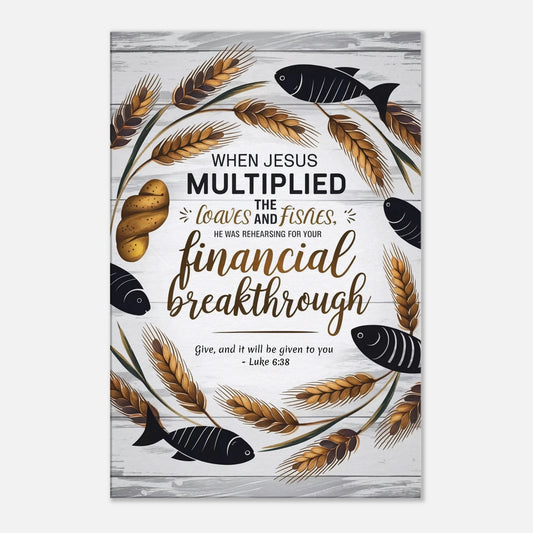
How My Faith Helped Me Manage Finances: A Christian’s Guide to Budgeting and Stewardship
I’ve had my share of financial ups and downs. Life doesn’t always go according to plan, but through faith, I've learned how to navigate the challenges. I want to share some practical tips that have worked for me, based on Biblical financial principles and personal experiences. Whether you’re budgeting, investing, or dealing with debt, I believe God’s wisdom can guide you just as it has guided me.
1. Christian Budgeting Tips: Plan with Purpose
Budgeting is essential for managing your finances in a way that honors God. I used to struggle with sticking to a budget, but I realized that setting a clear purpose helped. Proverbs 21:5 says, “The plans of the diligent lead to profit as surely as haste leads to poverty.” This verse reminds me to be intentional with my spending.
- Tip: Track your income and expenses each month and make adjustments. For me, having a written budget helped me stay accountable, especially as a single parent.
2. Biblical Financial Principles: God Owns It All
The Bible teaches that everything we have is a gift from God. Psalm 24:1 says, “The earth is the Lord’s, and everything in it.” When I embraced this truth, I started looking at money not as something I own, but as something I manage for God. This shift in perspective changed how I spent and saved money.
- Tip: Pray before making financial decisions. Ask God to guide you in how to best use what He has given you.
3. Christian Tithing Guide: Giving as Worship
Tithing used to be difficult for me. As a single mother, there were always other things I felt I needed to prioritize. But I realized that tithing is about trusting God with your resources. Malachi 3:10 talks about bringing the whole tithe into the storehouse and how God will open the floodgates of heaven.
- Tip: Set aside 10% of your income for tithing first. It’s a step of faith, but it’s also a way of acknowledging that God is your provider.
4. Faith-Based Investing: Aligning with God’s Purpose
I started looking into faith-based investing when I realized that where my money goes should align with my Christian values. Whether it’s stocks, real estate, or other investments, it’s important to make sure your investments are ethical and honoring to God. I prayed over every investment decision, and God has always directed me to opportunities that align with my faith.
- Tip: Research ethical investing options that support causes or companies that reflect Christian values, such as those that avoid industries like gambling or weapons manufacturing.
5. Christian Financial Stewardship: Manage with Accountability
Financial stewardship means being a good manager of the resources God has given you. Luke 16:10 reminds us that “Whoever can be trusted with very little can also be trusted with much.” I learned that even in seasons when money was tight, God was teaching me to be faithful with what I had.
- Tip: Don’t despise small beginnings. Start by setting aside a little each month, whether for savings or giving, and watch how God increases your ability to manage more.
6. Biblical Money Management: Live Below Your Means
As a mother, I always wanted to provide for my daughters, but I realized that living beyond my means wasn’t the way to do it. 1 Timothy 6:6 says, “But godliness with contentment is great gain.” I started focusing on contentment rather than keeping up with others, and it made a world of difference.
- Tip: Focus on needs, not wants. Learning to live contentedly within your means leads to peace and allows for generosity.
7. Christian Debt Reduction: Finding Freedom in Christ
Debt can be overwhelming. I’ve been there, and it felt like I was drowning. But I found freedom when I started applying Biblical principles to debt reduction. Romans 13:8 says, “Let no debt remain outstanding, except the continuing debt to love one another.” I prayed for wisdom and started chipping away at my debt one step at a time.
- Tip: Use the debt snowball method: focus on paying off your smallest debt first while making minimum payments on larger ones, then move on to the next.
8. Ethical Investing for Christians: Stewarding with Integrity
Investing is more than just building wealth; it’s about stewarding resources with integrity. Proverbs 13:11 says, “Dishonest money dwindles away, but whoever gathers money little by little makes it grow.” I avoided get-rich-quick schemes and focused on investments that align with my Christian values.
- Tip: Look for companies that promote fairness, sustainability, and ethics in their business practices.
9. Christian Financial Planning: Prepare for the Future
As a mother, planning for the future of my children is a priority. I’ve learned that Christian financial planning isn’t just about accumulating wealth, but about being prepared to provide for your family while also giving to God’s kingdom.
- Tip: Start small by setting up a retirement plan or investing in your children’s education, and trust that God will bless your efforts.
10. Faith and Finances: Trusting God with the Journey
Through it all, I’ve learned that financial success is not just about making smart choices—it’s about trusting God with the journey. Proverbs 3:5-6 has been my guide: “Trust in the Lord with all your heart and lean not on your own understanding; in all your ways submit to him, and he will make your paths straight.”
- Tip: No matter where you are on your financial journey, trust that God has a plan and purpose for your finances. Pray over your budget, your goals, and your future, and watch how He moves in ways you never expected.
Balancing faith and finances has been a journey for me, and I hope these Christian budgeting tips and principles can help you as much as they’ve helped me. By applying Biblical wisdom and trusting in God’s provision, I’ve seen His faithfulness time and time again.
May these tips inspire you to seek God’s guidance in your financial decisions and live in the freedom that comes from honoring Him with your resources.




